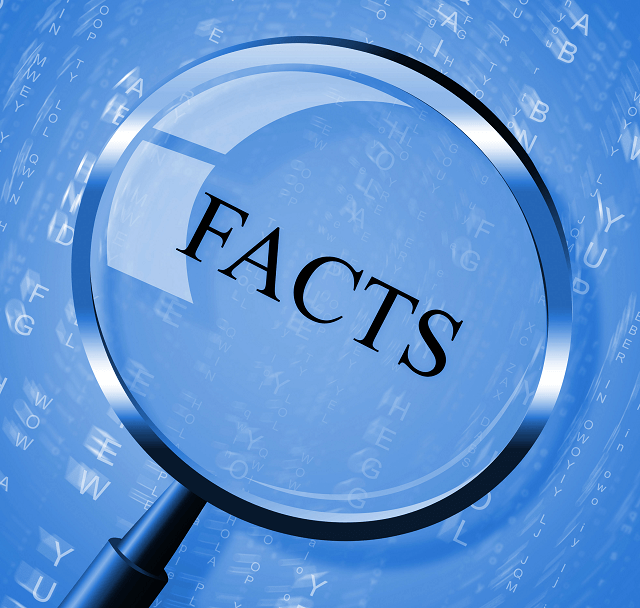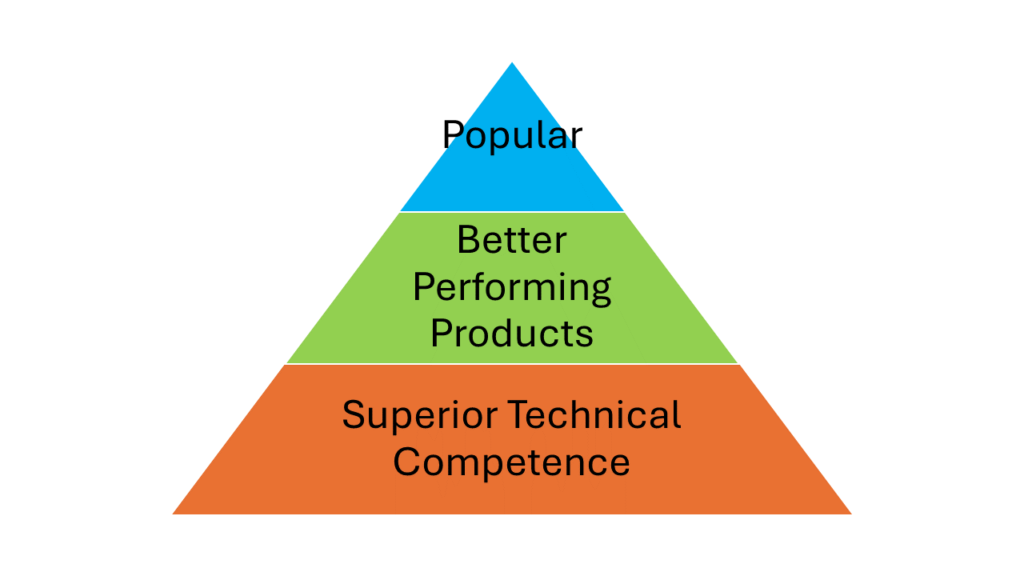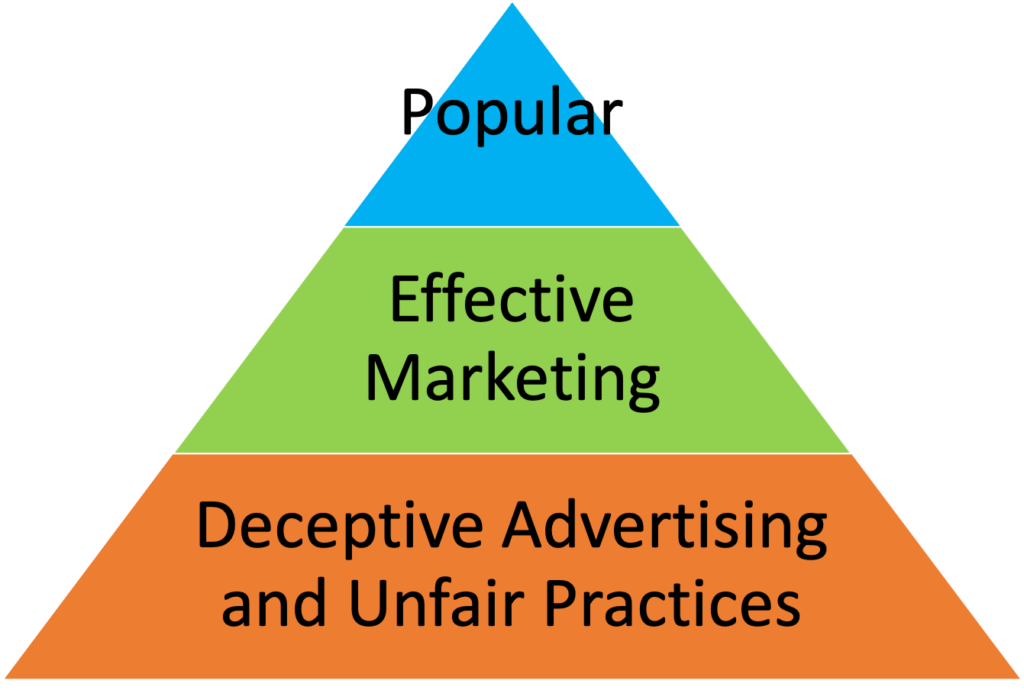Introduction:
Equilibrium Tuning (EQT) is a popular business serving the Mk7 enthusiast consumers with aftermarket parts and services.
Beginning to examine the basis of its popularity is the subject of this post.

Dealing with facts is not where they are accustomed to playing.
Author Unknown
Background:
Archived versions of the Equilibrium Tuning website show that the business began to serve the Volkswagen line of vehicles starting in early 2017, three years after the introduction of the VW Mk7 GTI.
While we started as a Subaru specialty shop, we now also handle Nissan GT-R, Mitsubishi Evo, Corvette, BMW, Porsche, MazdaSpeed, and various other platforms.
Equilibrium Tuning Website – About Us, October 2016
EQT entered the VW marketplace late relative to the introduction of the Mk7, and much later relative to competing businesses that have been serving the Volkswagen consumer base for decades.
Businesses such as Audi Performance and Racing (formed in 1999), HPA Motorsports (formed in 2000), REVO Technik (formed in 2003), Integrated Engineering (formed in 2007), and United Motorsports, (formed in 2010).
Popularity growth:
It would take only a few years for an often-stated popular opinion to be that EQT had the best tunes, the best turbochargers, and the best service available for the Mk7.
I’ve read explanations for this popularity that follow this logic:
The popularity that Equilibrium Tuning has must be due to the products being better than others on the market. The tunes must be better, and the turbochargers must be better, why else would they be popular?
Providing “better” products in a competitive market where performance parts are sold would follow from having equal or better technical competence than the competition.
This logical hierarchy supporting EQT’s popularity is illustrated below:

Discrepancy:
Gathering information in support of decision-making is something I’ve done routinely working as a test and evaluation engineer for almost twenty years. A recurring activity is determining if claims made about a product’s performance are accurate, especially when the claims can be substantiated by evidence.
When I asked questions of EQT that would be easily answered by a technically strong organization the evasive response I got was a red flag:

Usually when I contact an aftermarket parts business about a claim they make there is at least some justification provided, but EQT’s response was one where bravado substituted for brains.
This reaction reinforced concerns raised by prior questionable information coming from EQT. I’ve previously discussed EQT’s invalid evaluation of Integrated Engineering’s intercooler, their advising that on-throttle compressor surge was not detrimental to turbochargers and that turbocharger compressor efficiency could be determined from the intake manifold air temperature.
These indicators suggested that the presumed “foundation” of EQT’s popularity, superior technical competence, was suspect.
New Hypothesis:
With the “Technical Competence” theory for popularity lacking evidence, I thought about how else EQT might have become very popular relative to its competitors.
Effective marketing was a potential answer.
Marketing includes activities undertaken by a business establishment or an individual to promote their services and products.
The Economic Times
Effectively marketing its products and services made logical sense. An effective marketing campaign could help distinguish average products and services from those of the business’s competitors.
Although EQT operates in the realm of performance parts, there is a glaring deficit of comprehensive, in-depth, and objective product comparisons. Statements such as “the consensus is“, or “I’ve read that…“, and “It has been proven…” without any proof offered, constitute a large portion of the justifications given for product performance.
In this market, any business that can shape the consumer narrative about a product through its marketing has a powerful tool for influencing its sales, and consequently, those of its competitors.
Looking into some of EQTs marketing activity raises concerns about failure to adhere to ethical business practices.
Examples are found of financially compensating consumers for making reviews without disclosing this enticement, making unsubstantiated product performance claims, and engaging in deceptive practices. EQT’s owner has stated the following:
… I don’t feel the need to adhere to strict “professionalism” standards…
Edward Susman – Owner of Equilibrium Tuning Inc.
The evidence points to the foundation of Equilibrium Tuning’s popularity including deceptive advertising and unfair practices.
This model has compelling evidence to support the logic of the hierarchy:

Comparison:
This model and its supporting evidence present a logical progression. A newer business selling “average” products and services quickly surges in popularity and success versus its veteran competition using what amounts to cheating. It violates fair business practices to manipulate consumers into believing it offers them the “best” option of several products.
This progression is reminiscent of the story of Professional Cyclist, Lance Armstrong.
Armstrong was undoubtedly a good cyclist. On the way to winning the Tour de France seven consecutive times, he garnered international fame.
As good a cyclist as Lance seemed to be compared to his competition, his lack of “professionalism” led him to engage in unfair practices to boost his standing against his competitors, utilizing performance-enhancing drugs over his career.
After being investigated, Lance Armstrong was stripped of his titles and banned for life from all sanctioned bicycling events.

The similarities here are apparent. A rise in success and popularity but that popularity and success is underpinned by actions that contain elements that are both unfair and deceptive.
Evidence points to Ed Susman and his EQT business appearing to be the Lance Armstrong of the VW aftermarket performance market.
Digging deeper:
In addition to the evidence referenced in this post, there are other examples of EQT applying manipulative and deceptive practices that will be addressed in future posts.
Bringing together evidence supporting the hypothesis that EQT’s popularity is in part from manipulating consumers with deceptive advertising and unfair practices will be the function of a page centralizing information on this subject.
References:
- Equilibrium Tuning unsubstantiated claims about product performance
- Equilibrium Tuning misleading claims for independent product testing
- Ed Susman’s false statements about the flow bench that I use
- Ed Susman’s false statements about my consideration of data
- Ed Susman’s false statements about the testing I’ve done being flawed
- Ed Susman’s false statements about the testing that I perform being limited
- Ed Susman’s false statements about me being a hack
- Ed Susman’s false statements about questions I emailed to the business containing “demands”
- Ed Susman’s false statements to another consumer who commented on my review
- Ed Susman statements about professionalism being optional
- Ed Susman’s false statements to a performance shop employee who questioned Ed’s claims
- Ed Susman makes threats to suppress a consumer review
